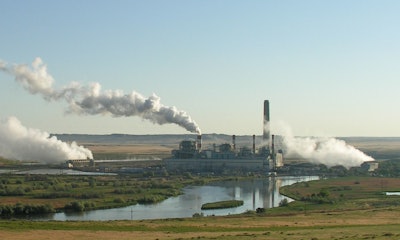
CHICAGO (AP) — The Environmental Protection Agency said Wednesday it's postponing portions of an Obama-era rule to curb water pollution from coal-fired power plants while it considers whether to rewrite the measure.
It's the second time the agency, at the behest of the electric utility industry, has tried to delay implementation of the 2015 requirements for steam electric power plants to control the amount of coal ash-contaminated wastewater flushed from their plants.
The water, which contains toxic heavy metals such as lead, arsenic and mercury, is pumped to holding ponds but often ends up in rivers and lakes. The new rule sets the first specific limits on those toxins.
Postponing the rule for two years would give utilities relief from the pending deadlines to upgrade pollution-control equipment while the agency revisits some of the rule's requirements, EPA Administrator Scott Pruitt said.
Pruitt also tried to postpone the rule in April, but environmental groups sued, saying the EPA did so without public notice or comment and that it doesn't have the authority to simply suspend rules that already were legally adopted. That lawsuit is pending, and environmentalists say they'll challenge the new move as well.
"They in essence say the concerns about industry costs ... are more important than public health benefits," said Thomas Cmar, a lawyer for the legal advocacy group Earthjustice.
Wednesday's action was narrowed to apply to wastewater from scrubbers — the equipment that takes sulfur out of smokestacks — and water used to flush out the coal ash that settles at the bottom of the plant boilers. The rule set deadlines for the utilities to implement dry-handling of ash or to recycle water within the plant.
The EPA has estimated that the 2015 rule, if implemented, would reduce power plant pollution by about 1.4 billion pounds a year. Only about 12 percent of the nation's steam electric power plants would have to make new investments to meet the higher standards, according to the agency.
Utilities would need to spend about $480 million on new wastewater treatment systems, resulting in about $500 million in estimated public benefits, such as fewer incidents of cancer and childhood developmental defects.
Meanwhile, the EPA's existing rules from 1982 remain in effect. Environmentalists sued the Obama administration to update those guidelines, saying they no longer reflected current knowledge about the health and environmental effects of toxins or advancements in technology.






















